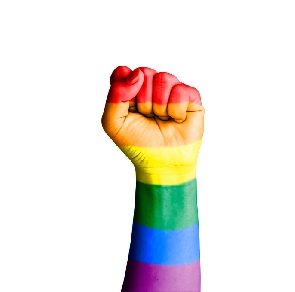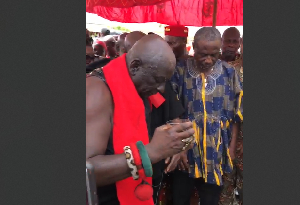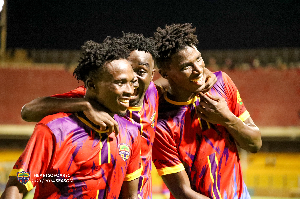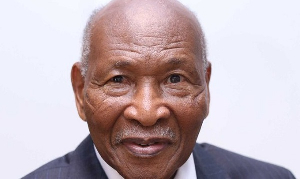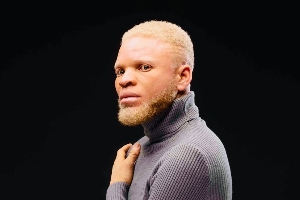Opinions of Wednesday, 12 April 2023
Columnist: Dr. Isaac Tuffour
LBGTQI+ commotion in Ghana: Okomfo Anokye must be rolling in his grave
It is a well-known fact that the topic of LBGTQI+ rights is a sensitive and contentious subject in Ghana and many African countries. While some are advocating for equal rights and protection under the law, others argue that homosexuality and other forms of gender expression fall outside religious, traditional, and cultural norms and should therefore not be promoted or acknowledged.
One major current dialogue surrounding LBGTQI+ rights in Ghana is the ongoing
parliamentary debate of the ‘Proper Human Sexual Rights and Ghanaian Family Values Bill, 2021’. Dubbed as the ‘Anti-LGBTQ Bill’, that proposes 10 years jail term for LGBTQI+ activists. The country has been under pressure from international human rights groups to change its laws on homosexuality, which currently criminalizes what is labelled as 'unnatural carnal knowledge'.
According to a report by the Human Rights Watch (HRW), LGBTQI+ Ghanaians face widespread discrimination, persecution, and physical and verbal abuse.
When Ghana’s president Nana Akufo-Addo recently met with US vice-president Kamala Harris, who was visiting the country, he stated that significant sections of the draconian anti-LGBTQ bill being discussed by Ghana’s parliament have been revised because of his government's intervention.
However, despite calls for reform, the Ghanaian parliament has so far not been receptive to the idea of decriminalizing same-sex relations. In response, many LGBTQI+ activists in Ghana have taken to social media and other platforms to raise awareness and advocate for their rights.
One interesting perspective on the history of LGBTQI+ in Ghana comes from the legend of Okomfo Anokye, the high priest who is believed to have brought down the Ashanti Golden Stool from the skies. Okomfo Anokye is a renowned figure in Ghanaian and Ashanti history, and many of his feats and adventures are the stuff of legend.
It is said that Okomfo Anokye possessed mystical and supernatural powers, which he used to aid the Ashanti people in their struggles against their enemies.
However, one of the most fascinating narratives of Okomfo Anokye revolves around his ability to change his gender at will. Legend has it that Okomfo Anokye would assume the form of a young attractive woman selling pawpaw to seduce the king of Denkyira, Ntim Gyakari, and weaken him. This transgression paved the way for the Ashantis to conquer the Denkyiras and ultimately establish their sovereignty over the region.
While the legitimacy of this story is difficult to establish, it raises many interesting questions regarding gender expression and sexual identity in traditional Ghanaian culture. If Okomfo Anokye was indeed able to change his gender at will, what does that say about the cultural perceptions of gender and sexuality during his time?
Moreover, if Okomfo Anokye was, in fact, a homosexual, gay, bisexual, trans, queer or non- binary person, would that change the way we view him as a historical figure?
Would his contributions to Ashanti history, culture and tradition be any less valid or important?
These questions are particularly relevant considering the ongoing debate surrounding LBGTQI+ rights in Ghana. As the country struggles to come to terms with changing social norms and global pressure to embrace diversity and inclusivity, it is worth considering the lessons that can be learned from our cultural heritage.
Ultimately, the issue of LBGTQI+ rights in Ghana is a complex and multifaceted one. While some argue that promoting LGBTQI+ lifestyles is incompatible with traditional Ghanaian values, others maintain that all people deserve the right to love and express themselves freely.
As lawmakers continue to deliberate on the issue, it is important that all voices are heard and that an inclusive resolution is reached. Whether we are considering the legacy of mythical figures like Okomfo Anokye or the lived experiences of LGBTQI+ Ghanaians today, our cultural heritage offers valuable insights into the intersections of gender, sexuality, and tradition.

